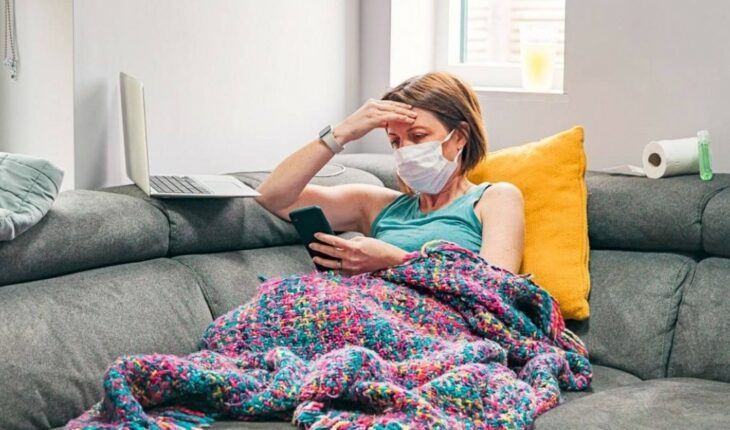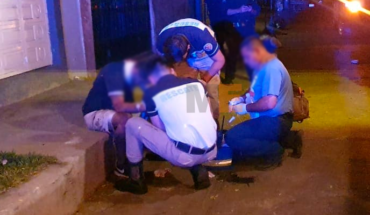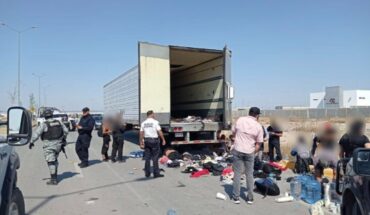In the last 24 hours, the Ministry of Health of the Nation reported more than 40,000 cases of Covid-19 in the country, a figure that marked a record since the beginning of the pandemic. And in the midst of the strong rise, doubts continue, of, among other things, when someone is considered close contact, when to go to swab and how long the isolation should last. In this note, a summary of what infectologists recommend.
Am I close contact?
All people who have remained at a distance of less than 2 meters with a confirmed case while it presented symptoms, or during the 48 hours prior to the onset of symptoms, for at least 15 minutes, are considered close contact. Also those people who have provided care to a confirmed case while it presented symptoms or during the 48 hours prior to the onset of symptoms and who have not used adequate personal protection measures. In popular neighborhoods, indigenous peoples, closed institutions or prolonged hospitalization, close contact is considered to:
Anyone sharing a room, bathroom, or kitchen with confirmed cases of COVID-19.
Any person who attends community centers (canteen, club, parish, hostels for people in street situations, etc.) and has maintained close proximity with a confirmed case, while the case presented symptoms (less than 2 meters, for 15 minutes).
In the case of health personnel, those who, without properly using appropriate personal protective equipment, are considered exposed to SARS-CoV-2:
Stay within two meters of a confirmed covid-19 case for at least 15 minutes (for example, sharing a clinic or waiting room).
Have direct contact with secretions (e.g., coughing, sneezing, etc.).
Have direct contact with the environment in which a confirmed patient remains (such as room, bathroom, bedding, medical equipment, among others, including cleaning procedures).
Stay in the same environment while performing aerosol-generating procedures.
Health personnel exposed to SARS-CoV-2 shall not be considered to be those who have correctly used appropriate personal protective equipment at all times. Finally, on an airplane or bus, close contact is considered to be all passengers within a two-seat radius around and crew who have had contact with confirmed cases of COVID-19 who have started symptoms or have been confirmed within 48 hours of travel. Also, all people who have two or more of the following symptoms are suspected: fever (37.5°C or higher), cough, sore throat, shortness of breath, headache, muscle pain, diarrhea/vomiting, rhinitis/nasal congestion. Also any person who has suffered a sudden loss of taste or smell or who has received a complete vaccination schedule against COVID-19, and at least 14 days have passed since the last dose. Finally, also any person who is a health worker, or resides or works in closed or prolonged institutions (such as penitentiaries, nursing homes, neuropsychiatric institutions, children’s homes), or is essential personnel (Security Forces and Armed Forces; Persons providing assistance to the elderly) or residing in popular neighborhoods or indigenous peoples, or close contact of a confirmed case of COVID-19 within the last 14 days, and presenting one or more of the following signs or symptoms: fever (37.5°C or more), cough, odynophagia (sore throat), respiratory distress, rhinitis/nasal congestion.
How long do I have to isolate myself and when is it convenient to swab?
The Federal Health Council recently shared the recommendations of the isolation conditions stating the following:
People with confirmed COVID-19 and at least two doses (less than 5 months after completing the scheme or applying the booster dose) should be isolated for seven days from the date of onset of symptoms (or diagnosis in asymptomatic cases) plus three days of care (not attending events defined as higher risk – mass events, social gatherings-, use a mask in an appropriate way -well adjusted, covering the nose, mouth and chin- permanently in closed or open environments where there are other people, maintain social distance, ventilate the environments continuously, take extreme care in the presence of people with risk factors).
Those who are a confirmed unvaccinated case or with an incomplete schedule (have only the first dose) should do 10 days of isolation from the date of onset of symptoms or, parto asymptomatic people, from the date of diagnosis.
Close contacts without SYMPTOMS of COVID-19 with a complete vaccination schedule (less than 5 months after completing the schedule or applying the booster dose) should be isolated for five days from the last contact with the confirmed case, plus five days of care. In addition, diagnostic tests may be indicated after the fifth day in special situations (e.g. workers in contact with at-risk populations).
Asymptomatic close contacts without vaccination or with an incomplete schedule should perform 10 days of isolation from the last contact with the confirmed case or 7 days of isolation and a negative test from the seventh day plus 3 days of care.
An important clarification is that completing 5 days of isolation, for example, implies that you can leave only on day 6. On the other hand, getting tested earlier than stipulated can give a false negative, since it is possible that the virus is not yet detectable.
As detailed by the Buenos Aires Ministry of Health, through this link you can consult by health region the places where swabs are performed, for antigen tests, for the diagnosis of coronavirus in suspected cases. In the Autonomous City of Buenos Aires you can approach any Febrile Emergency Unit without a shift if you have symptoms of coronavirus, or a Detect Device if you do not have symptoms. In Córdoba, the Ministry of Health of the province informs the Testing centers in this link and, in addition, recently enabled the Chapel of the Good Shepherd as a massive Covid-19 testing center and added to the School Eng. Cassaffousth.Finally, the links of the main testing centers in Santa Fe, Tucumán, Corrientes and Mendoza.





